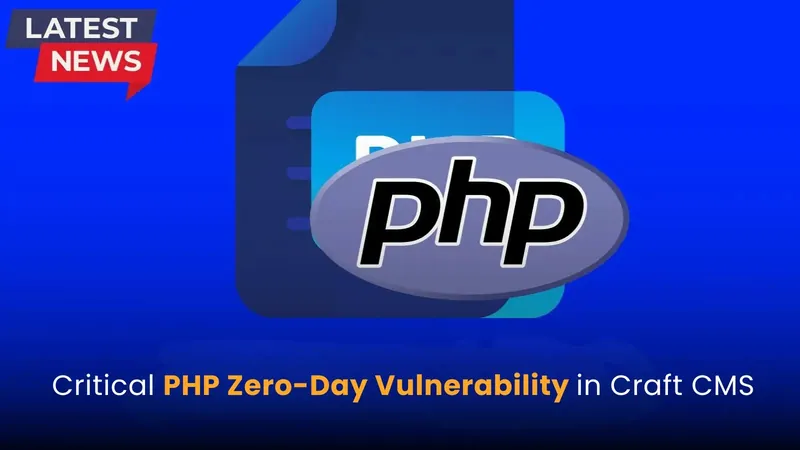
Urgent Warning: PHP Zero-Day Exploit in Craft CMS Allows Hackers to Seize Control Remotely!
2024-12-21
Author: Jia
In a shocking development, a serious security flaw has been discovered in Craft CMS, one of the leading content management systems built on PHP. This zero-day vulnerability, designated as CVE-2024-56145, provides hackers with a gateway to execute arbitrary code remotely without any authentication—especially notable under default configurations.
Security experts quickly flagged this issue, and commendably, the Craft CMS development team rolled out a patch within just 24 hours of the disclosure. This rapid response showcases the urgent necessity for software developers to be on high alert for vulnerabilities.
What Makes This Vulnerability So Dangerous?
At its core, the vulnerability exploits a peculiar aspect of the PHP language—the register_argc_argv setting. This setting allows command-line arguments to be populated when executing scripts. While enabling this configuration can have its uses, it also opens the door to unexpected security issues, especially in web-hosted environments like Craft CMS's Docker image, where it is enabled by default.
The flaw becomes apparent during the bootstrap sequence of Craft CMS, where it processes command-line options. Hackers can use malicious query strings to manipulate critical file paths, ultimately gaining control over files such as configuration documents or templates. They can even host malicious templates on an FTP server using an ftp:// wrapper to inject harmful code directly into vulnerable Craft CMS installations.
Further investigations revealed that attempts to sandbox the template engine known as Twig can be easily circumvented. Developers discovered methods to bypass existing defenses, leading to remote code execution (RCE).
The Scale of the Threat
Craft CMS powers over 150,000 websites, including high-profile enterprises, making the implications of this vulnerability potentially catastrophic for countless organizations. Given the widespread usage, it is critical for users to act swiftly and upgrade to patched versions 5.5.2+ or 4.13.2+ immediately to mitigate risks.
For users unable to perform the update right away, there is a temporary fix: disabling the register_argc_argv setting in the php.ini file can provide a buffer against these attacks, but this is merely a stopgap solution.
Lessons Learned from CVE-2024-56145
This incident spotlights the importance of recognizing how subtle configurations in PHP can lead to drastic consequences. Developers are urged to implement rigorous checks to determine if their scripts are running in a command-line interface (CLI) environment instead of using less reliable indicators like $_SERVER['argv'].
The community's quick response to the vulnerability reflects the significance of responsible disclosure practices. It reinforces the notion that proactive measures are crucial in minimizing the effects of such security flaws.
As the PHP ecosystem continues to evolve, possessing knowledge of its nuanced behaviors remains essential for developers tasked with creating secure applications. This vulnerability serves as a warning that even minor misconfigurations can have severe repercussions if they fall into the hands of malicious actors.
Moreover, researchers have even published an exploitation tool related to CVE-2024-56145 that allows attackers to execute these dangerous payloads, increasing the urgency for organizations to bolster their security measures.
In conclusion, organizations must stay vigilant and keep their software updated while adhering to secure coding practices to safeguard their systems against evolving threats. Don't let your website be the next victim—act now!




 Brasil (PT)
Brasil (PT)
 Canada (EN)
Canada (EN)
 Chile (ES)
Chile (ES)
 España (ES)
España (ES)
 France (FR)
France (FR)
 Hong Kong (EN)
Hong Kong (EN)
 Italia (IT)
Italia (IT)
 日本 (JA)
日本 (JA)
 Magyarország (HU)
Magyarország (HU)
 Norge (NO)
Norge (NO)
 Polska (PL)
Polska (PL)
 Schweiz (DE)
Schweiz (DE)
 Singapore (EN)
Singapore (EN)
 Sverige (SV)
Sverige (SV)
 Suomi (FI)
Suomi (FI)
 Türkiye (TR)
Türkiye (TR)